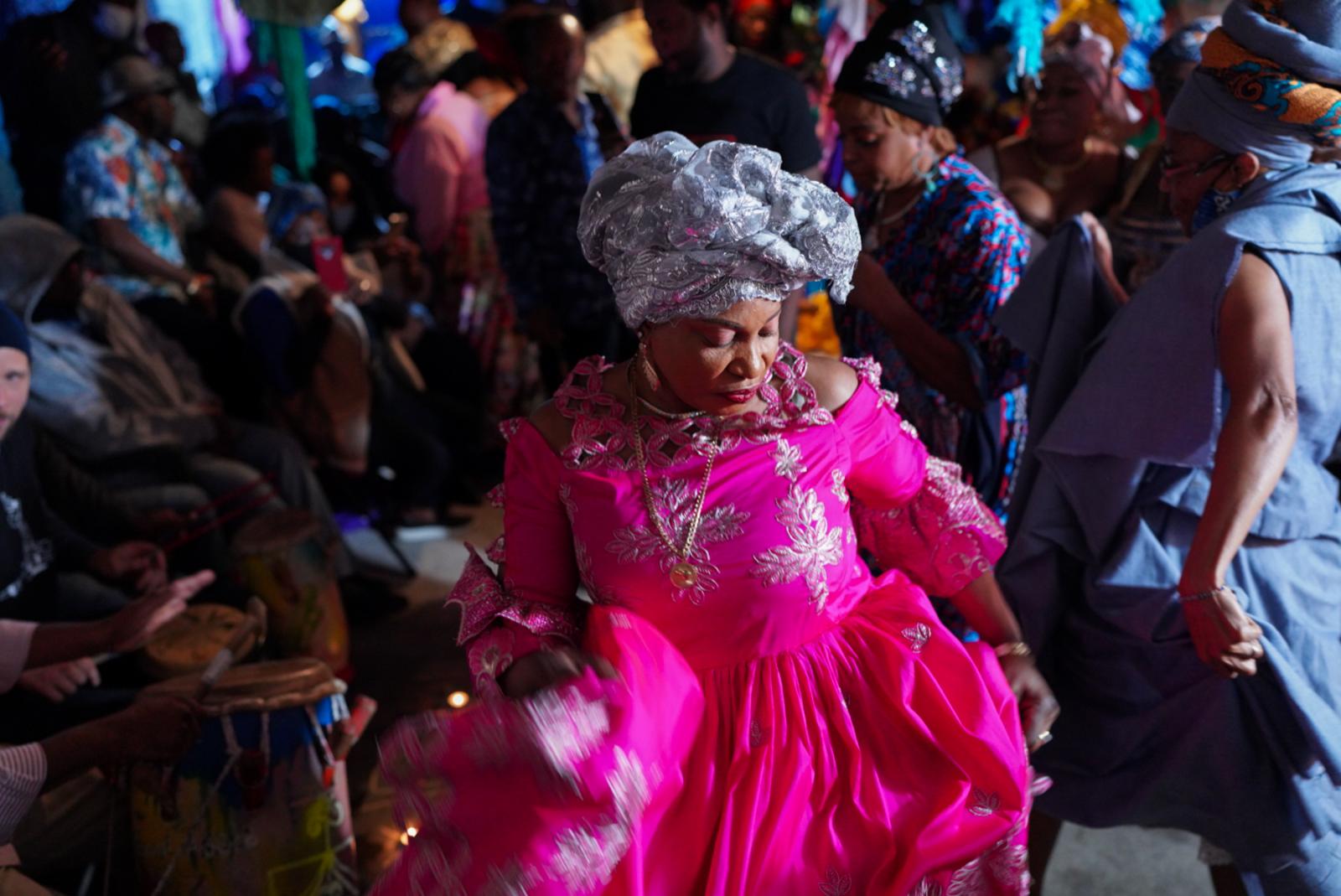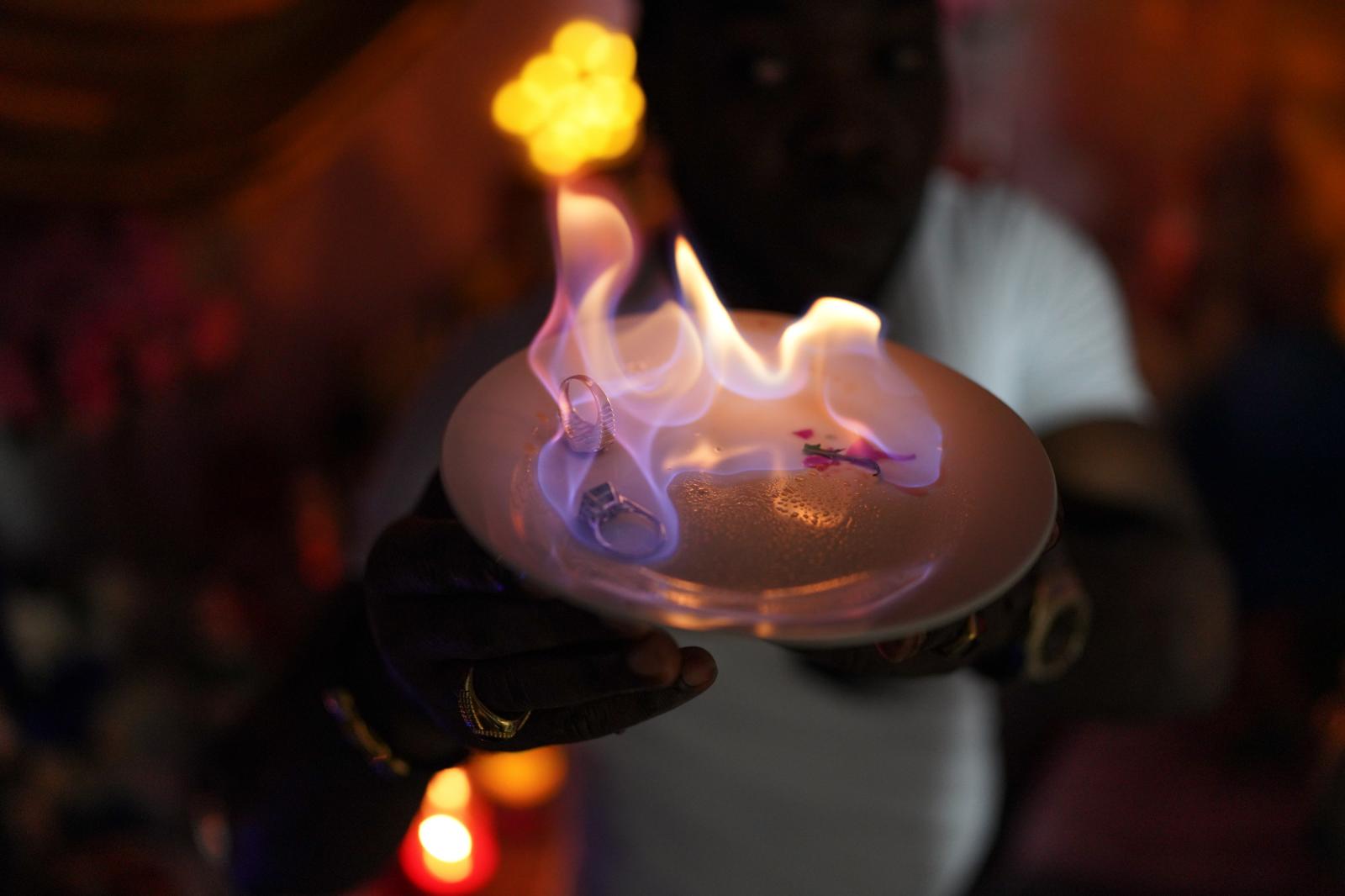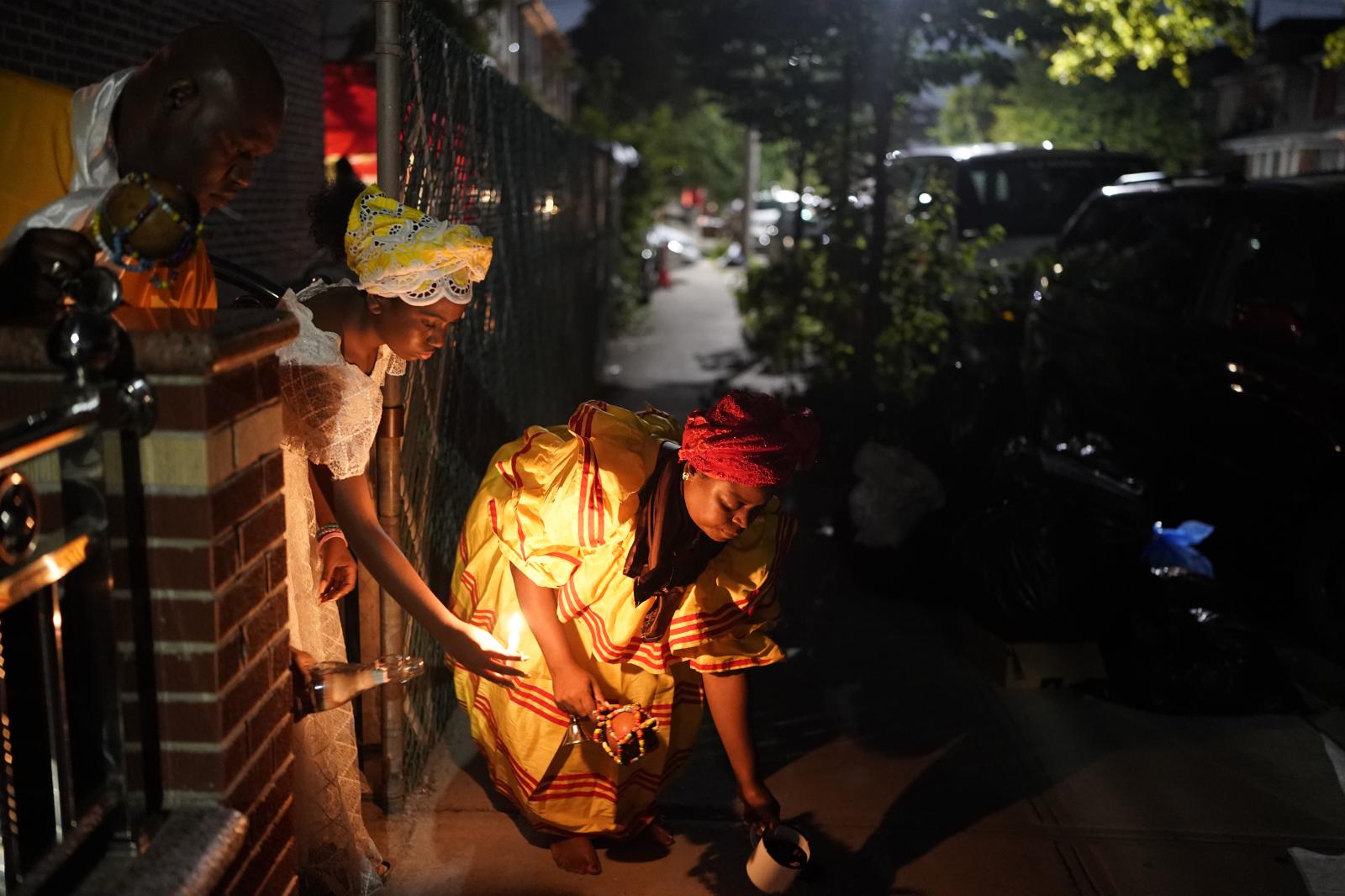New York Vodou in Photos: How Followers of an Ancient Faith Are Battling Stereotypes.
In 2003 the Haitian government, under president and former Catholic priest Jean-Bertrand Aristide, officially recognized Vodou as a religion and gave it equal standing with Catholicism (which is also highly influential in Haiti). In recent months, Vodou believers have started candlelight processions at night on sidewalks in their neighborhoods, where they prayed for their country as political unrest and violence escalated. And once again, as they have for decades, refugees are fleeing Haiti for sanctuary in the United States.
After 10 years working as an Associated Press photographer in Haiti, I had to flee my homeland with my wife and children in 2021 because of a work-related death threat from a drug gang. While learning to navigate my new home in New York, I have been documenting my fellow Haitians. I was hoping to dispel prejudices about Vodou and help practitioners to gain greater acceptance in the United States. (I am not a practitioner.)
Many Vodou believers have settled in New York, which has the second-largest Haitian population in the United States after Miami. They’ve often practiced their religion in secret in basement temples. Now, Vodou priests and priestesses in New York are seeking to establish community temples where they can practice their faith openly. Such temples, they say, could help lead to public acceptance.
In every ceremony, drumming is central — and beckons ancestral spirits to be present. These spirits take over participants’ bodies as the priest (ougan) or priestess (mambo) leads the ceremony. These events usually last all night (at least five hours), ending with a communal meal. Animal sacrifices also are made to the spirits, but the animals have already been butchered and blessed before entering the temple. The sacrifices include chickens, goats and cows.
Hundreds of Vodou priests and priestesses have small temples in their basements in the New York area, according to Florence Jean-Joseph, a mambo in Queens who represents the National Confederation of Haitian Vodou in New York. While the religion’s leaders are working to organize public temples, they are having difficulty because of soaring rents, real estate values and misperceptions about Vodou, Jean-Joseph told me. Nevertheless, she says, “we have to do it because we have an obligation to honor the spirits.”For Jean Saurel Francillon, a former journalist for Haiti’s national radio station who has been a Vodou priest for 30 years, fostering a better understanding of Vodou is critical to increasing public acceptance. He is promoting interfaith dialogue to spread Vodou’s message of living in harmony with the world at large. “Vodou is nature,” Francillon says. “Vodou is life.”
Dieu-Nalio Chery is a freelance photojournalist now based in Detroit.






















